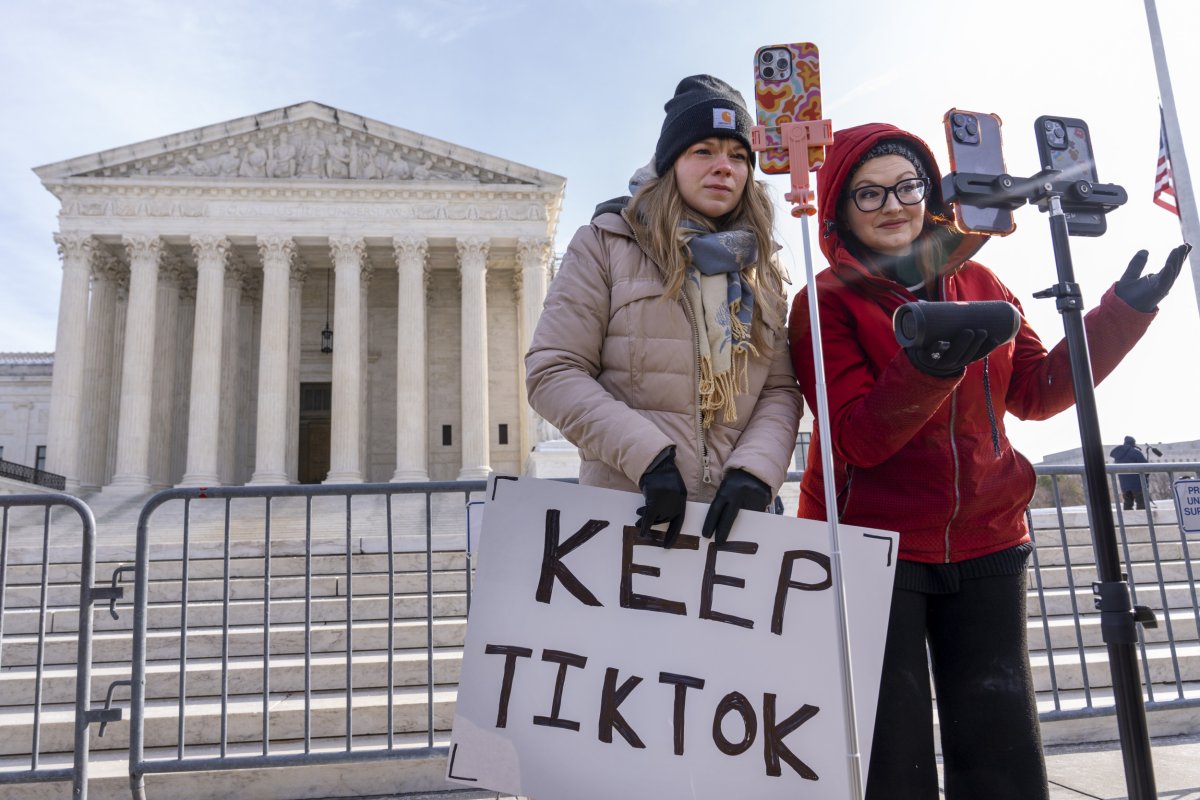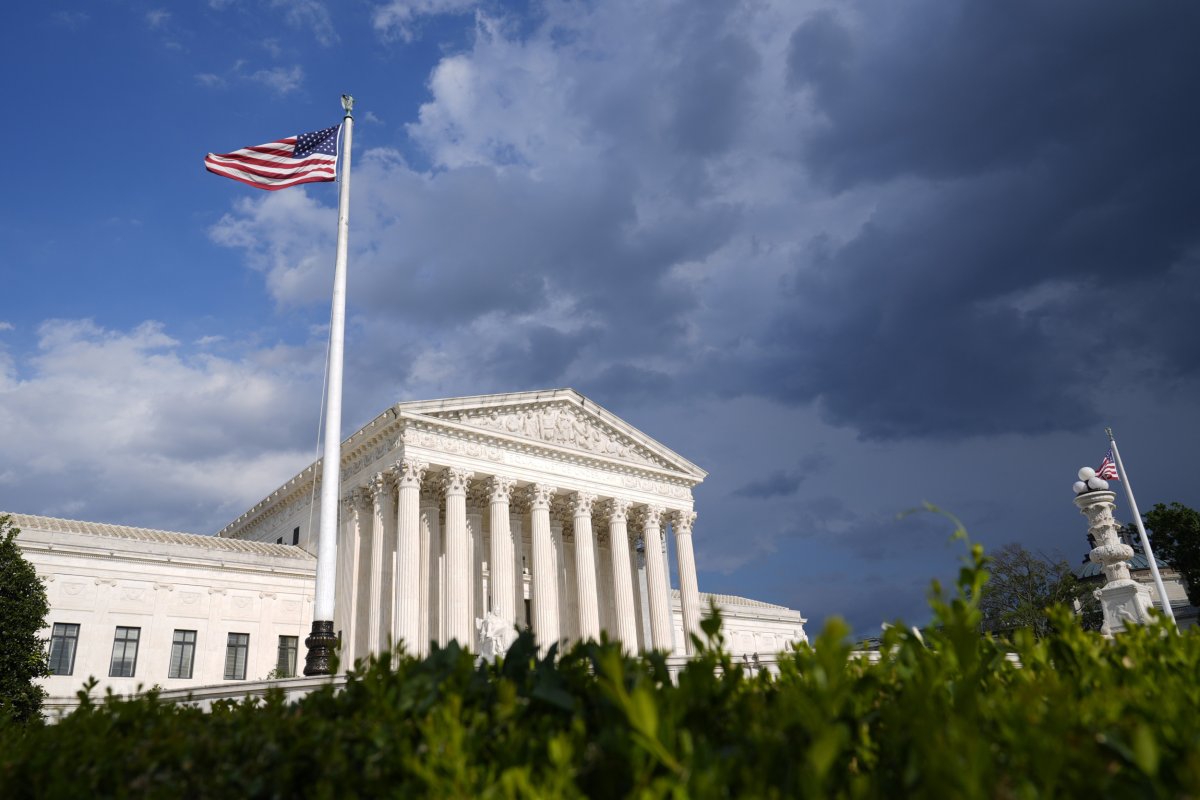The U.S. Supreme Court ruled unanimously on Friday to uphold a federal law banning TikTok unless its China-based parent company, ByteDance, sells the app by Sunday.
The ban reflects growing concerns over national security and the app’s ties to the Chinese government.
With TikTok boasting 170 million users in the U.S., the court’s decision highlights the tension between safeguarding national interests and preserving freedom of speech for millions of American users.
While the law does not require the immediate removal of TikTok from devices already holding the app, new users will no longer be able to download it, and updates will be blocked.

Sarah Baus, left, of Charleston, South Carolina, and Tiffany Cianci, who says she is a “long-form educational content creator,” livestream to TikTok outside the Supreme Court, on Jan. 10, 2025, in Washington. The U.S. Supreme Court ruled unanimously on Friday to uphold a federal law banning TikTok unless its China-based parent company, ByteDance, sells the app by Sunday.
Jacquelyn Martin/AP, file
This will render the app effectively unusable over time, according to court filings by the Justice Department.
However, outgoing President Joe Biden’s administration signaled it won’t enforce the ban starting Sunday.
President-elect Donald Trump, who has 14.7 million followers on TikTok, has expressed interest in finding a solution.
However, his stance is at odds with prominent Senate Republicans, who have criticized TikTok’s Chinese ownership for not securing a sale sooner.
The law, passed in April and backed by bipartisan majorities in Congress, allows for a 90-day delay in the TikTok ban if there is evidence of progress toward a sale.

The Supreme Court in Washington, June 30, 2024. It has unanimously upheld the federal law banning TikTok beginning Sunday unless it’s sold by its China-based parent company.
Susan Walsh/AP, file
However, Solicitor General Elizabeth Prelogar, who defended the law on behalf of the Biden administration, told the Supreme Court that it remains unclear whether a potential sale could trigger this 90-day respite once the law goes into effect.
The challenges of selling TikTok are compounded by Chinese regulations that restrict the transfer of its proprietary algorithm, a key driver of the app’s success.
TikTok and its parent company have argued that this makes a sale difficult, with the platform’s addictive nature and controversial data collection practices under close scrutiny.
Critics, including several states and a lawsuit filed by Kentucky, have accused TikTok of promoting addictive content that harms children’s mental health. TikTok has denied these claims.
The dispute over TikTok underscores broader geopolitical tensions between Washington and Beijing, with U.S. officials expressing concerns that TikTok’s vast user data could be accessed by the Chinese government.
As the deadline looms, the fate of TikTok in the U.S. remains uncertain, with the court ruling serving as a pivotal moment in the ongoing clash between national security concerns, business interests, and the free speech rights of millions of American users.
This article contains additional reporting from The Associated Press.







